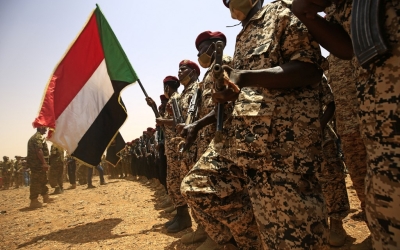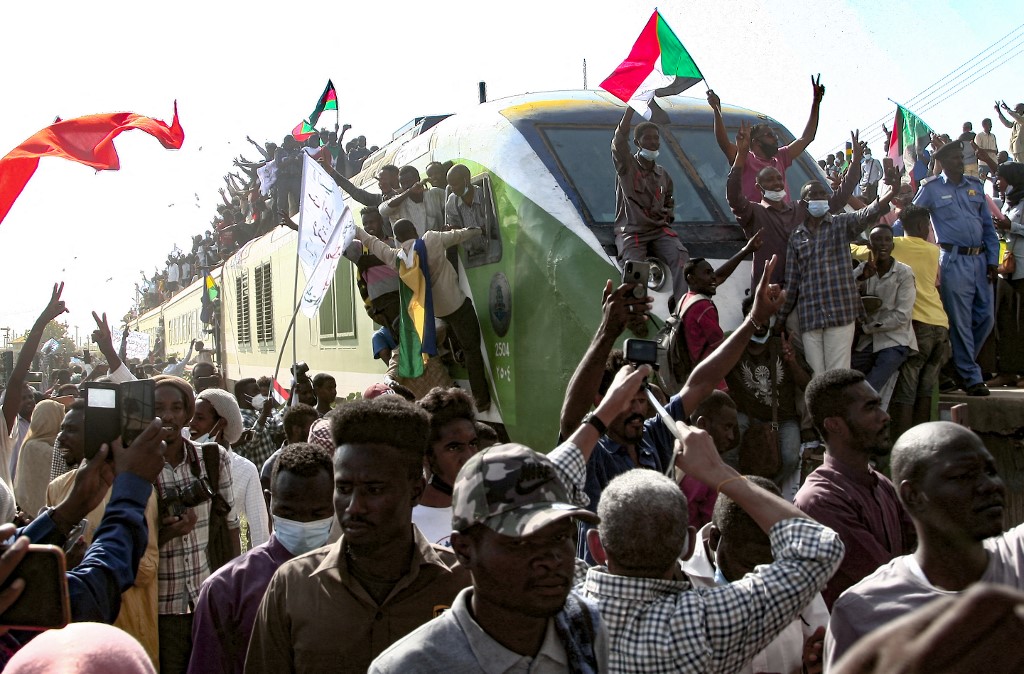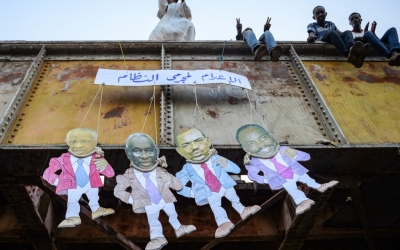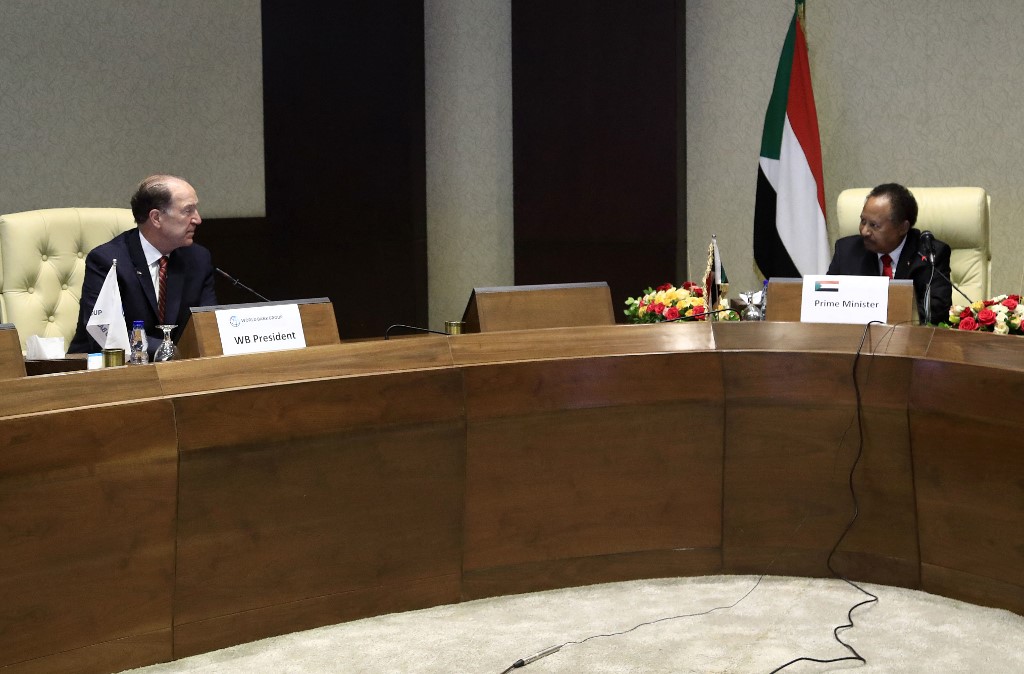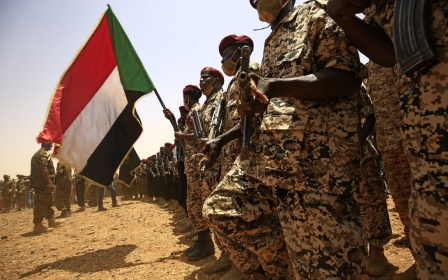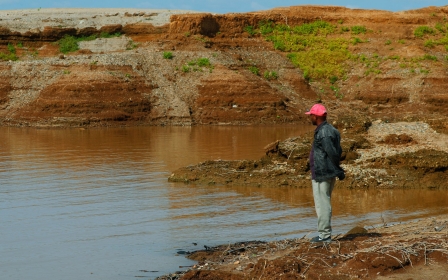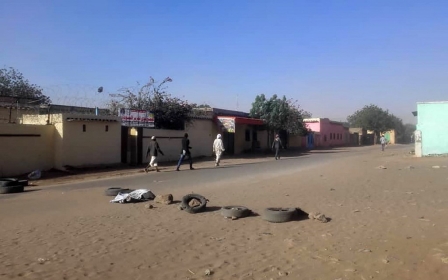Sudan: Large protests against military rule reflect deepened political crisis
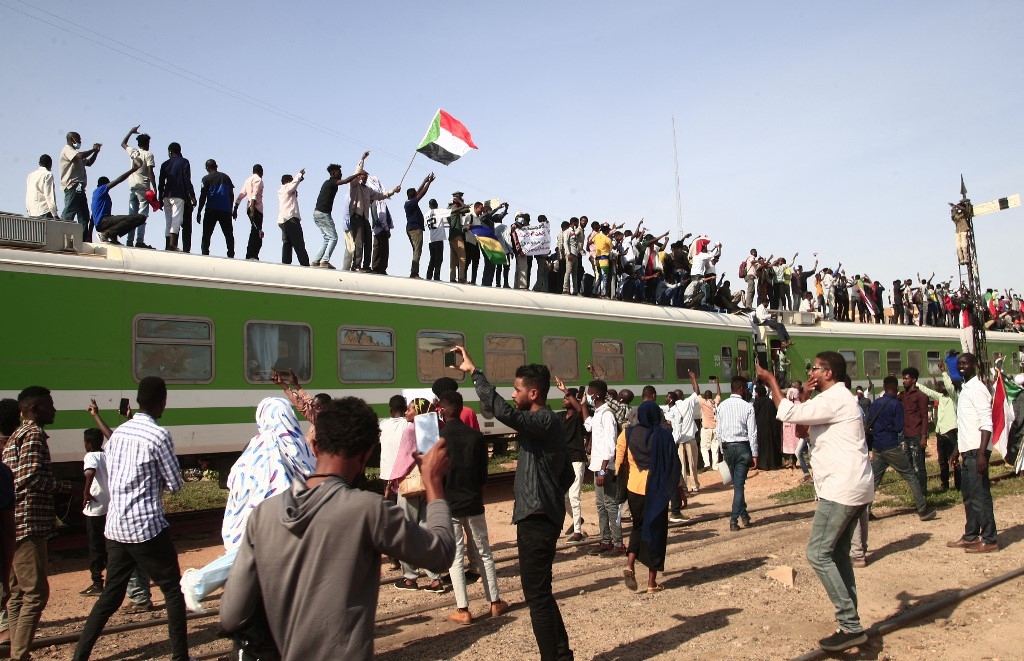
Sudan's political crisis has deepened dramatically in recent weeks, with civilians and military officials in the transitional government entering into an aggressive cycle of fiercely worded accusations.
The war of words, along with an alleged coup, denounced by both the army and civilians last week, has pushed international guarantors of the power-sharing deal between the civilians and military to rush to Sudan and mediate between the two sides.
New MEE newsletter: Jerusalem Dispatch
Sign up to get the latest insights and analysis on Israel-Palestine, alongside Turkey Unpacked and other MEE newsletters
On Thursday, Sudanese security forces fired tear gas to break up a demonstration in the capital Khartoum by an estimated 20,000 people in support of a civilian-led transition to democracy.
Many protesters also criticised the visit, on the same day, of World Bank President David Malpass, and rejected the economic policies of his organisation and those of the International Monetary Fund (IMF).
The demonstrators in Khartoum, Madani, Atbara and other cities called for an end to the participation of the military in the country's transitional government, a partnership with civilian representatives that has held since August 2019.
'Dismantling the deep state'
Trains from Atbara and Madani also carried hundreds of protesters to the demonstration in Khartoum, where those attending raised anti-military slogans and banners condemning the attempted coup.
Atif Ismail, 33, from the Sudanese Professional Association (SPA), said the army was in conflict with the civilian leadership for two reasons.
Firstly, because it did not want the officers and generals accused of killing more than 100 protesters in front of the army headquarters in Khartoum on 3 June 2019 to be held accountable. “We believe that the army wants to keep ruling, including for the protection of the criminals," he said.
Secondly, because it did not want to hand over over the chairmanship of the sovereign council to civilian leaders, as agreed in the August 2018 powersharing deal between the two sides.
Ahmed Karar, a member of the resistance committee in the Alhaji Youssed neighbourhood of Khartoum, called for the dismantling of the “deep state” that he said was still defending the interests of the old regime and associates of former ruler Omar al-Bashir.
Protesters and the military forced Bashir, who is accused of committing war crimes in the Darfur region, from power in April 2019, after 30 years of autocratic rule.
Speaking to Middle East Eye, Badur Abdallah, who arrived by train from the northern city of Atbara, urged the transitional government to immediately hand over Bashir and other former officials to the International Criminal Court (ICC).
He also called for the urgent formation of a transitional legislative assembly and the bringing to justice of those involved in the 3 June 2019 massacre.
Hassan, from Madani, who did not wish to give his full name, told MEE: “We don’t trust the current army commandership and generals who fabricated the failed military coup that was announced last week.”
Global emissaries race to Sudan
As tensions have risen, a number of international envoys have rushed to visit the country in order to ease the strains between the military and civilian leadership.
A United Nations source disclosed that Volker Perthes, special representative of the UN Secretary General for Sudan, has been in Khartoum to undertake a series of meetings with civil and military officials in the transitional government.
“We got clear promises from the military that they would protect the transition and commit themselves to the constitutional declaration, while the civilians also promised to improve their performance,” the source, who asked for anonymity because he is not authorised to talk to the media, told MEE.
On Thursday, Jeffrey Feltman, US special envoy for the Horn of Africa, also visited Khartoum, along with the special envoys of the UK, France and Norway.
However, playing down international involvement, SPA spokesman Wali Ali said he believed the only way to protect the transition and democracy was through the people of Sudan who had made the revolution.
“Our stand against the military coup is a matter of principle and not only in support of the current transitional government," he said.
"We believe that the partnership between the civilians and military has to be changed by the people, we have to organise ourselves to change all this.”
In a direct show of international support for the civilian-led government of Sudan's Prime Minister Abdalla Hamdok, the UN and Norway convened on Thursday a high-level virtual event on Sudan on the margins of the 76th session of the United Nations General Assembly.
Delegations from 24 member states and eight international and regional organisations took part in the meeting, which was addressed by UN Secretary-General Antonio Guterres - who expressed his concern over the coup attempt - and Hamdok.
“The high-level side event provided an opportunity to take stock of the overall progress achieved thus far and reaffirm international support for the transition at a critical time,” Guterres said.
Ine Eriksen Soreide, Norway's foreign minister, referred to the joint responsibility of the military and civilian components of the Sudanese government to rebuild the country on a democratic basis.
“You are in the same boat,” she said, before lauding the armed forces' successful response to last week's coup attempt.
Amid Thursday's protests, David Malpass paid the first visit by a World Bank president to Sudan in 40 years, following decades of sanctions under Bashir.
The United States removed Sudan from its state sponsor of terrorism blacklist in December 2020, eliminating a major hurdle to much-needed aid and financial investment.
"Sudan is making a transition from a violent situation, from a situation of shortages to the situation that is gradually improving," Malpass said after meeting Hamdok.
"It takes time to go through this process and it will be important for people to approach it with patience and with tolerance for each other knowing that the whole that Sudan's building - a nation - is going to be stronger than the individual parts."
However, activists protested in front of the friendship hall where Malpass had given a speech, raising radical slogans against the Bank’s policies.
“We are against the policies of the World Bank and the IMF that imposed its conditions on our country and led to the austerity measures and lifting of the subsidies which is causing very painful pressure on normal citizens,” one of the protesters said.
Balance of power
Sudanese political analyst Salah Aldoma attributed the current increased tensions in the country to the uneasy balance of power between the military and civilian leadership, especially as the transition enters its second half.
Aldoma also said he believed that the international guarantors had rushed to Sudan as they were fearful of the threat to the democratic transformation in the country and that the visits would provide a clear message to the military to stop any potential move against that transition.
“The deep state of Bashir’s associates is hidden among the military and still has a presence inside the army," Aldoma told MEE. "So the West has to put more pressure on the army in order to push for clear reform of the military and security sectors in the country. But we have to say that the first frontliners in protecting the democratic transformation are the people of Sudan.
“Whether the alleged military coup is true or fabricated, it gives a strong indication that democracy in Sudan is at a crossroads and any faction of the military or civilians may hijack it.”
Middle East Eye delivers independent and unrivalled coverage and analysis of the Middle East, North Africa and beyond. To learn more about republishing this content and the associated fees, please fill out this form. More about MEE can be found here.


